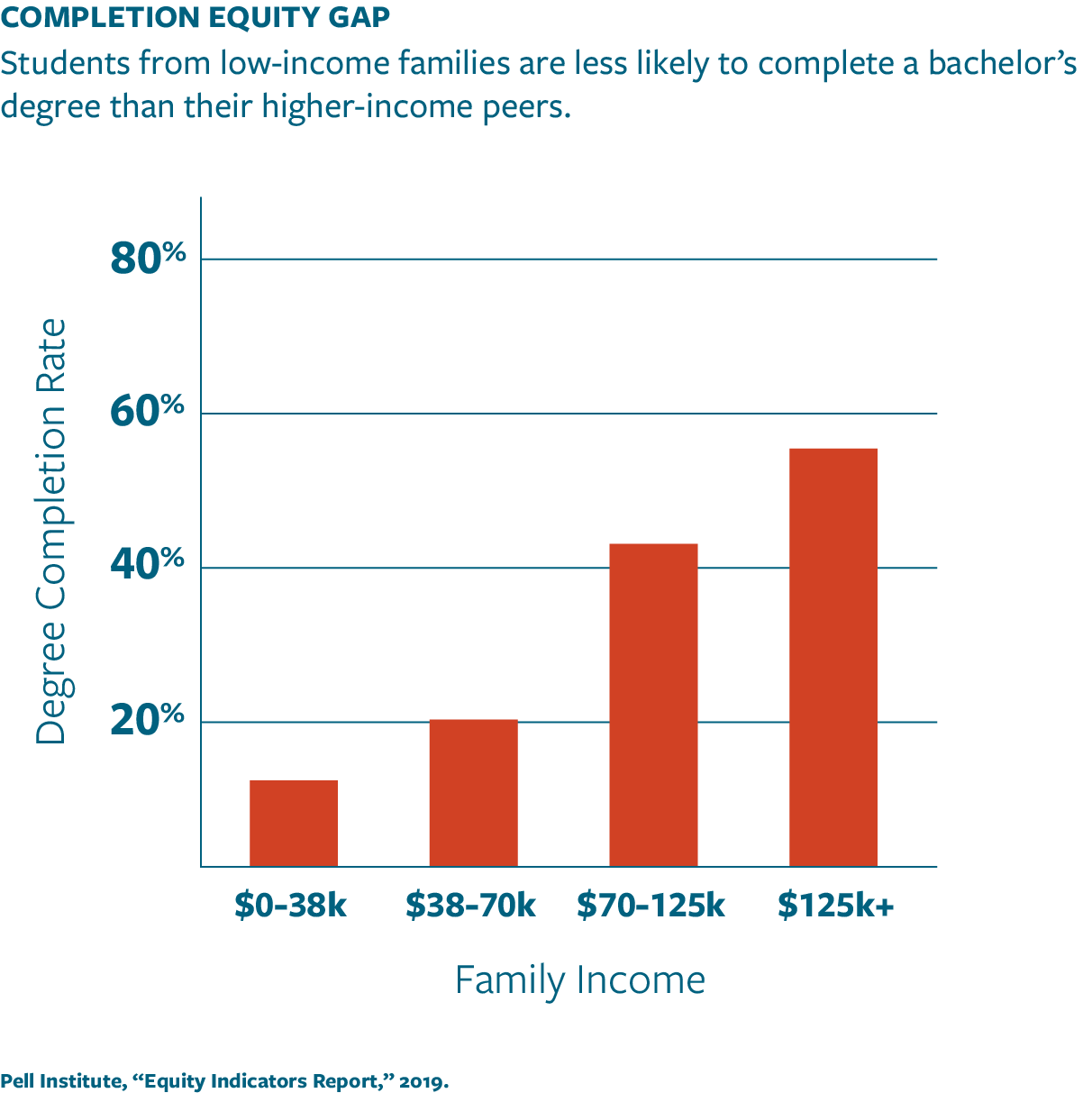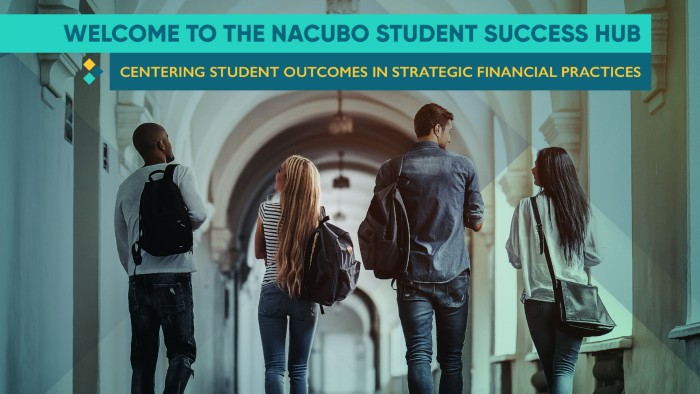
How We See the Problem
Today’s learners often aren’t well served by the educational systems that were built years ago for more traditional students. Now students are often older, more diverse, working one or more jobs, raising families, and struggling to make ends meet.
Colleges and universities are complex, and often don’t have a student-centric approach to course offerings or availability, advising and other institutional policies. The problem shows in the equity gaps in completion rates: just 11% of low-income students graduate with a bachelor’s degree. Almost 6 times as many students — 58% overall — from higher-income households graduate.

Our Three Investment Priorities
Grants to Remove Structural Barriers to Success
Fast Track to Success? A Mixed Methods Study of Accelerated Course Formats
Validation
This grant supports the Tennessee Board of Regents in partnering with Stanford University researchers to better understand the impact of accelerated courses on students from low-income and other non-traditional backgrounds.
Exploring Field-Driven Placement Innovation to Promote Student Success
Exploration
This grant supports Phase Two Advisory in exploring how innovative community colleges’ implementation of placement reforms may contribute to comprehensive changes in student instruction, advising and supports in the first year. This exploratory research will identify and document strategies to ensure placement reforms reach all students and are institutionalized into college structures and norms.
Fast Track to Success? A Mixed Methods Study of Accelerated Course Formats
Validation
This grant supports Evaluation and Assessment Solutions for Education LLC in better understanding the impact of accelerated courses on the academic success of students from low-income and other non-traditional backgrounds.
Equity and Policy Alignment to Drive Student Graduation Rates and Close Attainment Gaps
Exploration
This grant supports Complete College America in building capacity for networks of institutions to implement equity-centered completion policies and practices.
Transformational Partnership Fund
Exploration
This grant supports SeaChange Capital Partners in developing and launching the Transformational Partnership Fund, a funding vehicle that will provide postsecondary institution leaders with opportunities to explore and form long-term strategic partnerships ranging from mergers and acquisitions to administrative shared services or consolidated programs.
Governing Board Success Academy
Exploration
This grant supports the John N. Gardner Institute for Excellence in Undergraduate Education, in partnership with the Association of Governing Boards of Universities and Colleges, in providing professional development to governing boards on prioritizing equitable student success through practice, policy and budget oversight.
Community College Doctoral Program Redesign
Exploration
This grant supports the University of Maryland Global Campus in developing a new doctoral program in community college leadership. The program curriculum will be comprehensive and innovative, designed in collaboration with influential community college stakeholders and thought leaders.
2023 Aspen Prize and New Student Outcomes Data Benchmarking Tool
Scaling
This grant supports the Aspen Institute College Excellence Program in awarding the 2023 Aspen Prize for Community College Excellence and developing a set of data tools, benchmarks and resources to expand adoption of core student success practices related to community college excellence. This grant will support broader field use and engagement with metrics, enabling colleges to benchmark their progress and set institutional reform goals accordingly.
Data Fellows Program Pilot
Exploration
This grant supports the Association of Public and Land-Grant Universities and the Association for Institutional Research in piloting a Data Fellows program to improve data literacy on campus among faculty and staff. The program will foster increased use of student data to inform strategic, tactical and operational decisions, with the ultimate aim of improving student success outcomes.
Improving Higher Education Opportunities for English Learners
Exploration
This grant supports WestEd in examining the structural barriers faced by English Learners, a growing subpopulation of postsecondary students who disproportionately come from low income backgrounds. Information from research, policy and institutional practice will be synthesized to provide recommendations for reforming pathways that serve English Learners as they enter for-credit postsecondary degree programs.


